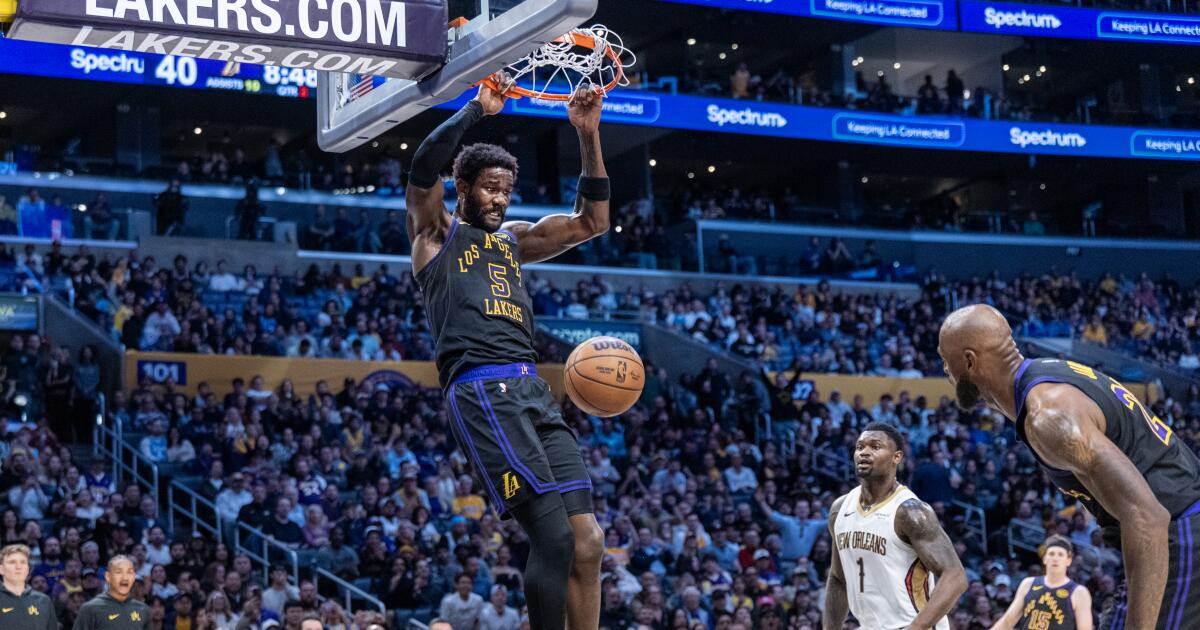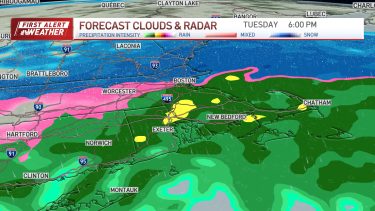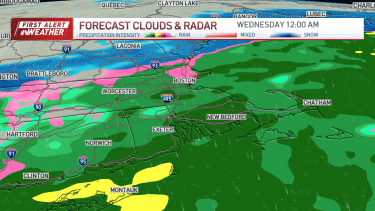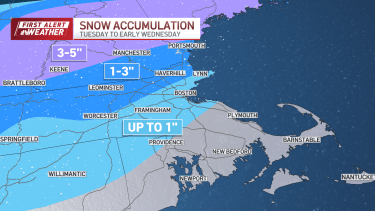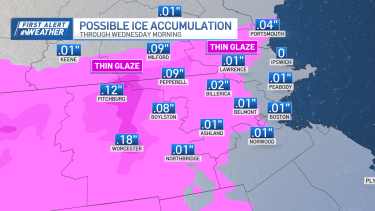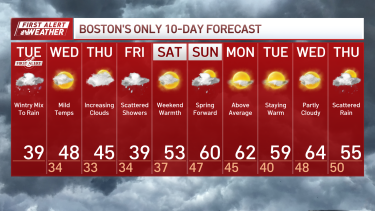Boston, MA
At the inaugural Home Alone Fest, Boston artists aim to pack the house – The Boston Globe

“I experienced [pay to play] my whole career as an artist,” he says. “What do you get out of it at the end of the day? Nothing. You don’t even get to meet the headliner.”
That won’t be an issue at Home Alone Fest, which has no national headliner; instead, the bill stacks sets from heavyweights in the area’s hip-hop and R&B scene, including Neemz, Latrell James, ToriTori, Shaykh Hanif, and BML J.R. The lineup is an outlier for The Sinclair and similarly-sized venues in the area, which sporadically present all-Boston bills.
Home Alone Fest furthers the mission of Joey’s Home Entertainment, a business that Santiago launched with collaborator Ashley Lord to assist artists with services like management and brand development. The endeavor fuses Santiago’s expertise as an artist with 500-plus shows under his belt, and Lord’s experience working at venues like The Middle East, The Sinclair, and Roadrunner, where he’s currently venue operations manager.
Lord states that Boston’s concert market is “oversaturated” with acts from out of town, often because venues perceive national artists as less of a financial risk than locals. Factor in the reality that some touring groups adopt the pay to play model when selecting openers, and there’s limited room for area musicians to break into larger venues.
“Us doing a show at The Sinclair is because a booker at Bowery [Boston] decided they want to take chances,” Lord says. “They want to be outside of the box, they want to do something not ‘normal,’ especially within the city that has a whole bunch of talented artists.”
The Sinclair’s upcoming schedule reflects that mind-set, with a rare cluster of Massachusetts artists headlining shows throughout August: Club d’Elf, Bent Knee, and Coral Moons. If Home Alone Fest packs the house as intended, Lord and Santiago hope to repeat the event — and hopefully expand its impact while demonstrating that all-local bills belong on the calendar regularly.
“It’s not ‘just a show,’” Lord says. “A festival gives us a chance to grow as well and bring it to any space.”
GIG GUIDE
Beginning Friday, Phish jam through three consecutive nights at the Xfinity Center with their new record “Evolve.” Santana and Counting Crows head to the amphitheater on Tuesday for their “Oneness” Tour to blend decades of immersive Latin psychedelia and poppy roots-rock.
Fenway Park’s concert season reaches a fever pitch this week as Watertown folk favorite Noah Kahan performs the second of two shows at the ballpark on Friday. Country star Kane Brown returns to the venue on Saturday, followed by Foo Fighters’ Sunday performance, which will be their first local appearance since their much-delayed headlining performance at Boston Calling last year. On Tuesday, blink-182 make their Fenway debut and mark the ballpark’s final show of July.
It’s no less busy at Roadrunner, where The LOX will celebrate 30 years of shaping East Coast hip-hop on Friday, and New Bedford’s hardcore punks Have Heart will complete a small slew of summer shows on Saturday. Swinging Tennessee string band Old Crow Medicine Show round out the weekend on Sunday on the “Jubilee” tour supporting their 2023 record of the same name.
A global sampling of new tunes comes to Somerville this week, as Montreal’s Cola spin minimalist post-punk from their June record “The Gloss” at the Rockwell on Friday, while Seoul trio The Volunteers slip beneath a shroud of gentle alt-rock from their new EP “L” at Crystal Ballroom on Wednesday.
O.A.R. summon their best renditions of songs like “Shattered (Turn The Car Around)” to record a live album at Leader Bank Pavilion on Saturday; serial handclappers Fitz and the Tantrums open the performance, which will also be available for fans at home to livestream via Veeps.
On Thursday, Club Passim hosts a celebration for the release of “Mass Spiritz Vol. 2,″ a collaborative hip-hop record supported by Passim’s Iguana Music Fund. The performance will feature Terry Borderline, the Brockton artist who spearheaded the project, and Jamaica Plain rapper and hip-hop educator Paul Willis.
NOW SPINNING
Barns Courtney, “Supernatural.” When stuck in the doldrums of the COVID-19 pandemic, Barns Courtney flipped a doom spiral into a roller coaster. With his third album, the British singer-songwriter crafts a fast track of rock ‘n’ roll that whirs through dystopian and hedonistic themes, securing Courtney a coveted spot in modern rock alongside Cage the Elephant and The Black Keys.

Battlemode, “Playlist.” Love is a losing game for Boston trio Battlemode, who power down an old romance on their newest single. With every loop of an ex’s playlist, the electro-pop group treads a rut of abandoned love, tweaking the sound of defeat into an aching chiptune lament.

Lava La Rue, “STARFACE.” When Lava La Rue released their 2022 EP “Hi-Fidelity,” the suave project’s only flaw was its quick runtime. No one can say the same about “STARFACE,” an ambitious debut that doubles as a 17-track supernova of funk-flecked sensuality and Tame Impala-esque psychedelia. “Finna gravitate to greatness,” the London shapeshifter casually announces on “FLUORESCENT / Beyond Space” — or, as “STARFACE” demonstrates, perhaps greatness will gravitate to them instead.
BONUS TRACK
Good news for everyone who missed Frank Turner & The Sleeping Souls at Boston Calling this year — the British folk-punk act will return to Massachusetts Aug. 24 to headline the 22nd annual Riverfest. The free festival from 92.5 the River will take over Salisbury Beach’s Broadway Boardwalk with performances from Turner, singer-songwriter Matt Pond PA, and Massachusetts-raised artists Ali McGuirk and Zola Simone.
Victoria Wasylak can be reached at vmwasylak@gmail.com. Follow her on X @VickiWasylak.

Boston, MA
Charlotte plays Boston on 5-game win streak

Charlotte Hornets (31-31, ninth in the Eastern Conference) vs. Boston Celtics (41-20, second in the Eastern Conference)
Boston; Wednesday, 7:30 p.m. EST
BETMGM SPORTSBOOK LINE: Celtics -6.5; over/under is 214.5
BOTTOM LINE: Charlotte is looking to keep its five-game win streak alive when the Hornets take on Boston.
The Celtics are 27-13 against Eastern Conference opponents. Boston is sixth in the NBA with 46.2 rebounds led by Nikola Vucevic averaging 8.8.
The Hornets are 19-21 in conference matchups. Charlotte is 7-8 when it turns the ball over less than its opponents and averages 15.0 turnovers per game.
The Celtics average 15.5 made 3-pointers per game this season, 2.7 more made shots on average than the 12.8 per game the Hornets allow. The Hornets average 16.0 made 3-pointers per game this season, 2.1 more made shots on average than the 13.9 per game the Celtics allow.
TOP PERFORMERS: Jaylen Brown is averaging 29 points, 7.1 rebounds and five assists for the Celtics. Payton Pritchard is averaging 17 points and 5.8 assists over the past 10 games.
Kon Knueppel is averaging 19.2 points, 5.5 rebounds and 3.5 assists for the Hornets. Brandon Miller is averaging 22.7 points, 5.3 rebounds and 3.6 assists over the past 10 games.
LAST 10 GAMES: Celtics: 8-2, averaging 109.4 points, 50.7 rebounds, 27.1 assists, 6.1 steals and 6.4 blocks per game while shooting 45.7% from the field. Their opponents have averaged 98.5 points per game.
Hornets: 7-3, averaging 117.3 points, 47.8 rebounds, 27.4 assists, 8.5 steals and 4.2 blocks per game while shooting 45.6% from the field. Their opponents have averaged 106.2 points.
INJURIES: Celtics: Jayson Tatum: out (achilles), Neemias Queta: day to day (rest).
Hornets: Coby White: day to day (injury management).
___
The Associated Press created this story using technology provided by Data Skrive and data from Sportradar.
Boston, MA
First Alert: Mix of snow and rain today, then looking ahead to warmer weather

Today is a First Alert weather day. A system to our south is pushing mix of snow and rain into southern New England through this evening and tonight.
For us here in Greater Boston, expect snow to continue spreading over our area through the afternoon/evening commute. In fact, parts our area could see up to 1 to 2 inches of snow accumulation before the sleet and rain move in.
Much of Greater Boston will likely see snow amounts on the lower end. Higher snow amounts are expected toward southern New Hampshire and along and north of outer Route 2. Also, some ice accumulations are possible, up to a tenth of an inch, creating a thin glaze here and there.
Dozens of schools in Connecticut and Massachusetts have already announced early dismissals as a result of the storm.
While this system won’t cripple our area, conditions could still create a mess on the roads during the evening commute through tonight. Be careful while driving. A Winter Weather Advisory remains in effect for parts of our area through early Wednesday morning. High temperatures will be in the mid to upper 30s today. Overnight lows will drop into the low 30s.
We’ll wake up to patchy fog Wednesday morning before the sun returns. High temperatures will be in the upper 40s. We’ll stay in the 40s on Thursday with increasing clouds. But by late Thursday night into Friday, wet weather returns. Some snow could mix with the rain into Friday morning. Highs will be in the upper 30s Friday.
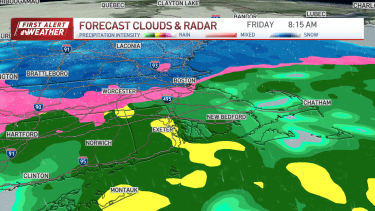
Warmer weather is expected this weekend. Highs will be in the 50s Saturday and possibly near 60 on Sunday.
Boston, MA
Boston police officials dominate the list of highest-paid city workers in 2025 – The Boston Globe

That was more than what every other city department spent on overtime combined, though it was a slight drop from the $103 million the police department spent on overtime in 2024.
High overtime spending inside the police department has long been controversial and a source of frustration for police-reform advocates. Last year’s nine-figure total comes as Mayor Michelle Wu warns of a challenging budget season to come for the city, which is grappling with inflation and the possibility of more federal funding cuts.
In a December letter, Wu told the city council that she instructed city department heads to find ways to cut 2 percent of their budgets in the next fiscal year. She also imposed a delay on new hires. Boston Public Schools Superintendent Mary Skipper has also proposed cutting somewhere between 300 and 400 positions next fiscal year due to budget constraints.
Overall, the city spent about $2.5 billion on employee salaries in 2025, up around 1.5 percent from $2.4 billion in 2024. The city employs roughly 21,000 workers, according to a public dashboard.
In a statement, Emma Pettit, a spokesperson for Wu’s office, attributed the payroll increase to raises, and in some cases, employees receiving retroactive pay, that were part of contracts the city negotiated with its various labor unions.
“We’re grateful to our city employees for their hard work to hold Boston to the highest standard for delivering city services,” Pettit said.
When Wu won her first mayoral race in November 2021, all of the city’s 44 union contracts had expired. Since then, Wu’s office has negotiated new agreements with all of them, and last year, agreed to a one-year contract extension with the Boston Police Patrolmen’s Association, the city’s largest police union.
But as the city heads back to the bargaining table to negotiate extensions or new contracts with others, city leaders should keep cost at the forefront of those conversations, said Steve Poftak, president of the Boston Municipal Research Bureau, a business-backed budget watchdog group.
“As budgets tighten, I’m hopeful that it increases the scrutiny on these collective bargaining agreements,” Poftak said.
The top earner on the city’s payroll last year was Boston Police Captain Timothy Connolly. In addition to his $194,000 base salary, Connolly took home nearly $230,000 in overtime, about $26,000 in undefined “other pay,” and roughly $49,000 as part of a higher-education bonus, for a total of $498,145 in compensation.
Skipper, as BPS superintendent, was the 55th-highest earner among city workers, coming behind 54 members of the police department. She made a total of $378,000 in 2025.
Nearly 300 city employees made more than $300,000 last year. In contrast, Wu made $207,000, though her salary increased to $250,000 this year. More than 1,700 city employees made more than the mayor in 2025.
Larry Calderone, president of the Boston Police Patrolmen’s Association, argued that the high overtime costs in the police department are, in part, a result of understaffing.
The department is short roughly 400 rank-and-file police officers, Calderone said, meaning the department has to pay its staff to work overtime and fill vacant shifts. The average salary for an officer in the BPPA is roughly $195,000, Calderone said.
With several large events approaching, including a Boston-based fan fest around this summer’s World Cup matches and the return of a fleet of tall ships to Boston Harbor, Calderone said most of the members of his union are likely to be working the maximum allowable 90 hours a week.
“We just don’t have the bodies on the street,” he said.
The Boston Police Department and the Boston Police Superior Officers Federation — the union that represents the department’s sergeants, captains, and lieutenants — did not immediately return requests for comment Monday.
Jamarhl Crawford, an activist and former member of the Boston Police Reform Task Force, said while high spending on overtime is not new for the police department, it’s a pressing problem the city should tackle.
The police and fire departments are “essential components of the city and society in general … [and] folks should be getting a fair wage. But it also has to be within fiscal responsibility,” Crawford said.
“In another 10 years,” he continued, “with pensions and everything else, this type of thing can bankrupt the city.”
Niki Griswold can be reached at niki.griswold@globe.com. Follow her @nikigriswold. Yoohyun Jung can be reached at y.jung@globe.com.
-

 World6 days ago
World6 days agoExclusive: DeepSeek withholds latest AI model from US chipmakers including Nvidia, sources say
-

 Massachusetts7 days ago
Massachusetts7 days agoMother and daughter injured in Taunton house explosion
-

 Denver, CO7 days ago
Denver, CO7 days ago10 acres charred, 5 injured in Thornton grass fire, evacuation orders lifted
-

 Louisiana1 week ago
Louisiana1 week agoWildfire near Gum Swamp Road in Livingston Parish now under control; more than 200 acres burned
-

 Oregon5 days ago
Oregon5 days ago2026 OSAA Oregon Wrestling State Championship Results And Brackets – FloWrestling
-

 Florida3 days ago
Florida3 days agoFlorida man rescued after being stuck in shoulder-deep mud for days
-

 Maryland3 days ago
Maryland3 days agoAM showers Sunday in Maryland
-

 Culture1 week ago
Culture1 week agoTry This Quiz on Thrilling Books That Became Popular Movies

